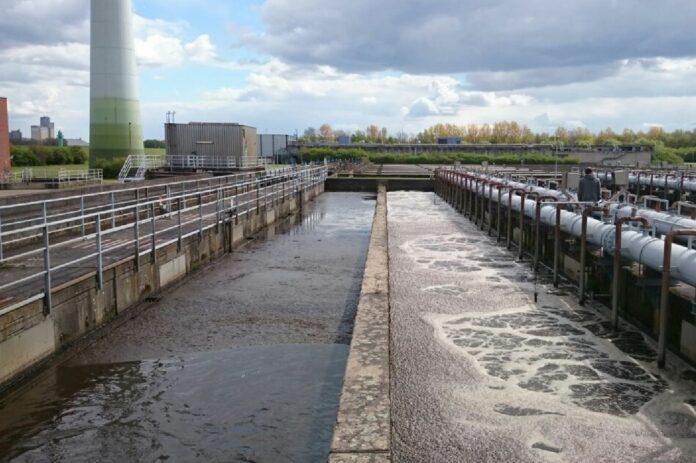The NO Breakthrough: Scientists Find Two New Unusual Species on Nitric Oxide
Researchers have made a significant breakthrough by identifying and characterizing two previously unknown microorganisms that thrive on the toxic gas nitric oxide (NO), efficiently converting it into harmless N2.
Nitric oxide (NO) is a remarkably versatile and intriguing molecule that holds vital importance for both living organisms and the environment. While it is highly reactive and toxic, it serves as a signaling molecule in organisms, contributes to ozone layer depletion in the Earth’s atmosphere, and acts as a precursor to the greenhouse gas nitrous oxide (N2O). Interestingly, NO may have played a fundamental role in the emergence and evolution of life on Earth, as it existed as a potent oxidant long before the presence of oxygen.
Given its toxicity, it is logical to assume that microbes can utilize NO for growth. However, research in this area has been limited, and until now, microorganisms capable of growing on NO had not been successfully cultivated. This has changed with a groundbreaking study conducted by scientists Paloma Garrido Amador and Boran Kartal from the Max Planck Institute for Marine Microbiology in Bremen, Germany, as published in the journal Nature Microbiology. The researchers managed to enrich and identify two previously undiscovered species of microorganisms that thrive on NO in specialized bioreactors, shedding light on fascinating aspects of their lifestyle.
Journey from Wastewater to Bioreactors
The investigation began with a visit to a wastewater treatment plant in Bremen, where sludge from the denitrifying tank was collected.
“We collected sludge from their denitrifying tank. Back in our lab, we added the sludge to one of our bioreactors and we started the incubation by feeding it with NO,” explains Garrido Amador.
Bioreactors are meticulously designed and optimized systems that simulate the natural environment, providing ideal conditions for microorganism growth. However, the utilization of NO in this bioreactor setup posed significant challenges.
“Because NO is toxic, we needed special equipment and had to take great care when handling them for our own safety,” reports Garrido Amador.
Despite the difficulties, the cultures have thrived for over four years and continue to flourish, and “they are still happy and healthy!”
The Discovery of Two New Microorganisms
The bioreactor’s living conditions selectively favored microorganisms capable of anaerobic growth with NO.
“Eventually, two previously unknown species turned out to dominate the culture,” reveals Boran Kartal, the group leader of the Microbial Physiology Research Group at the Max Planck Institute.
They “named them Nitricoxidivorans perserverans and Nitricoxidireducens bremensis.”
Garrido Amador further adds, “From just two microorganisms growing on NO, we gained valuable insight into how non-model microorganisms, in particular NO-reducers grow. Some of our observations showed us that these microbes did not conform to how model organisms – organisms which easily cultivated and thus extensively studied – behave, and showcased the limitations of metabolic predictions based solely on genome analyses.”
Environmental Significance and Waste Management Applications
The extent of microorganisms’ contribution to nitrogen cycling in natural and engineered environments, particularly those thriving on NO, remains largely unknown.
“Nevertheless, we can speculate that these microorganisms could potentially be feeding on NO and N2O released by other microorganisms while removing nitrosative stress and minimizing the emission of these climate active gases to the atmosphere,” adds Kartal.
The enriched microorganisms displayed exceptional efficiency in converting NO to dinitrogen (N2).
Kartal adds, “There were virtually no emissions of the greenhouse gas nitrous oxide.”
This exclusive production of N2 is of significant practical importance. Unlike many other microorganisms that convert NO to nitrous oxide, contributing to climate change, the harmless N2 generated by these microorganisms mitigates its impact. Thus, each molecule of NO transformed into N2 instead of nitrous oxide represents a reduction in climate-altering emissions.
In the next phase of their research, the Max Planck team is actively cultivating additional NO-respiring microorganisms using samples sourced from diverse natural and engineered environments.
“Cultivation and enrichment of further NO-respiring microorganisms will help to elucidate the evolution of N-oxide reduction pathways and the enzymes involved,” adds Garrido Amador.
“It will also allow to decipher the role of NO in known and yet-unknown processes of the nitrogen cycle and its importance in the natural and engineered environments where these processes take place.”
Source: 10.1038/s41564-023-01425-8
Image Credit: Niek Stortenbeker/Max Planck Institute for Marine Microbiology
